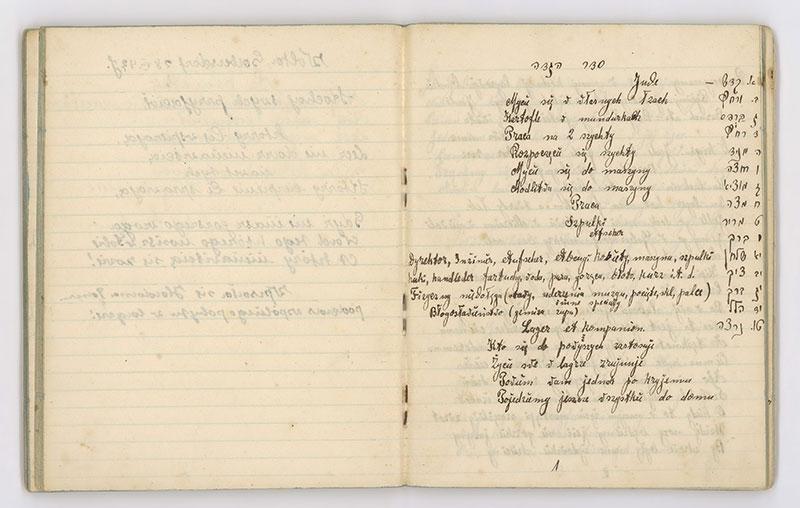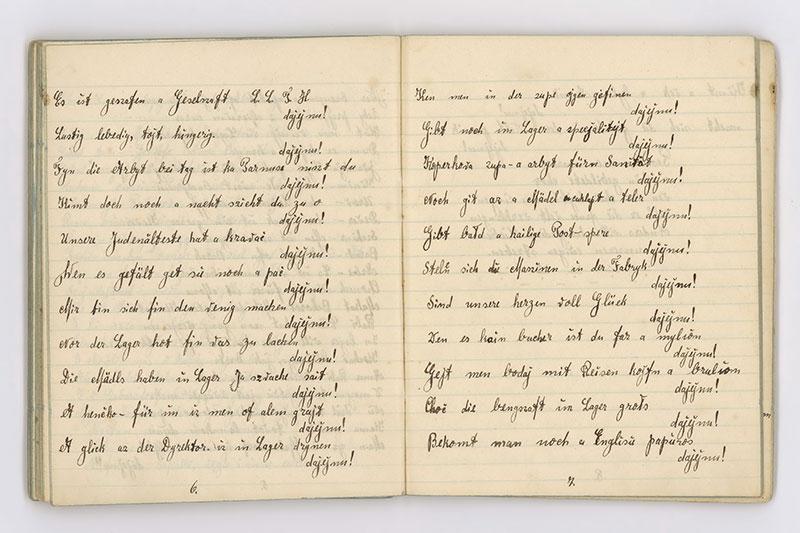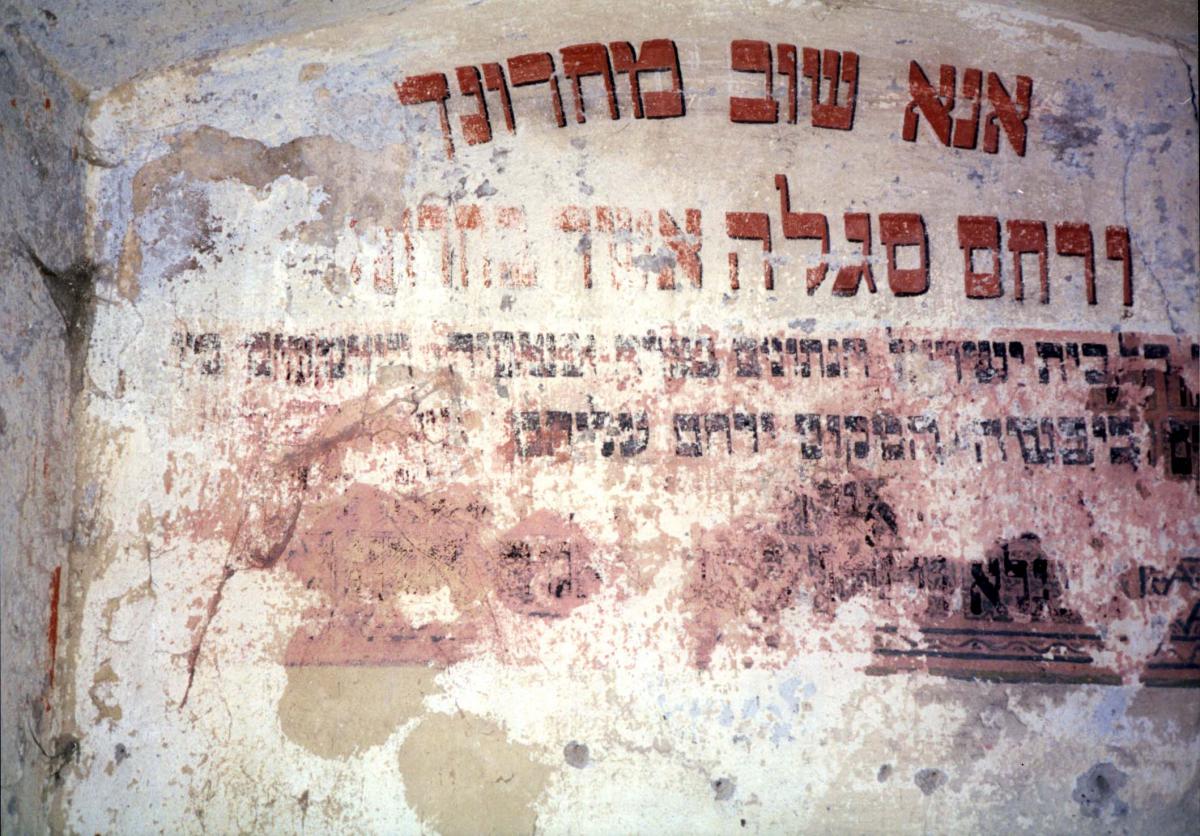
Yad Vashem Artifacts Collection
Donated by Fay (Lustigman) Eichenbaum and Esther (Lustigman) Gordon, Melbourne, Australia


Yad Vashem Artifacts Collection
Donated by Fay (Lustigman) Eichenbaum and Esther (Lustigman) Gordon, Melbourne, Australia


Yad Vashem Photo Archive, 4325/6

In the second blog of this series, we look at how prayers were adapted by Jewish men and women to reflect their ongoing reality, as well as their hopes and dreams for the future.
The strategy of adapting a well-known Jewish text to the Holocaust era can be seen with Regina Honigman’s Passover Haggadah. Inside, we can see some of the range of emotions, thoughts and feelings that were brought to the forefront by her consideration of the traditional text. There are prayers of hope: “Avadim Hayinu: We were slaves in Egypt once and now in Gabersdorf again ... The triumphal day will come to Gabersdorf. The gates will open...”; prayers that express pain and longing for better times: “Ma Nishtana: Why is this night different from all other nights? Because in our misery, as Jews, we are stronger. The night is very long and very dark. In vain, the longing and loneliness in our Jewish hearts flow. Dawn is coming, another day of hope. …Oh, when in our lifetime will a day come, when we will not eat the bitter vegetables every night? When will our Yiddishe (Jewish) children have a gezunt (healthy) life”; and a wry comparison of the order of the seder with daily life in the camp.
“Kadesh (Sanctifying): The Jewish people
U’rchatz (Washing Hands): Wash in our tears
Karpas (Special Vegetable): Potatoes with their peel
Yachatz (Dividing the Matzah): Working two shifts
Magid (Telling the Story): Starting each shift”
As with the megillah written in IIlia, this was not a project Regina undertook solely for her own benefit – her fellow prisoners also found it meaningful and she included a text written by the women of Gabersdorf that turns Dayenu – a prayer of thanks – on its head.
“Jolly, Lively, Death, Hunger
Dayenu! (it would have been sufficient)
Another night comes along,
Dayenu!
Our Judenälteste ("Jewish leader") has a bed,
Dayenu!
When it pleases her she whacks us,
Dayenu!”
Likewise, in From That Inferno, Aron Carmi recalls how he found a Passover Haggadah among piles of books in an attic as he assisted with preparations for the Warsaw Ghetto Uprising. Upon being reminded of the Passover Seder and of his father's singing, he decided to compose a new Haggadah, "based upon our daily lives, in the style of the traditional Hagaddah." In it, he described slavery for the Nazis in language that deliberately parallels the text of Avadim Hayinu from the Haggadah.
"We were slaves in the ghettos of Poland / to Hitler, Führer of Germany, accursed be his name / And we were taken from there… to be killed and enslaved / led naked across the snow and ice / and even were we all wise and smart / able to work tenfold our strength, / a downright miracle would it be / if from every community of Jews one or two remained / And those who tell of the suffering of the Jews of Poland / will live to see the downfall of Hitler and Germany. "
Drawing on the imperative to relate the events of the Exodus, Aron refers to “those who tell of the suffering of the Jews of Poland,” ending with the hope that at least some Jews would live to see the downfall of Hitler and Germany.
Then, in his version of the traditional prayer barukh hamakom, rather than thanking God for the gift of the Torah, he thanks God for “giving us the strength to rebel / and to stand against the wicked and evil authorities.”
Even when not adapting the text of the prayers as Honigman and Carmi did, the choice of which prayers to emphasize can be of great significance.
Passages of significant prayers are often painted or displayed on synagogue walls. In addition to the passages commonly found in synagogue decorations, the walls of a synagogue in Theresienstadt are unique in their inclusion of passages from the Tachanun, an ancient part of the liturgy that was chillingly appropriate in light of the Jews' reality during the Holocaust:
“God, relent from the evil meant for your people… Look from Heaven and perceive that we have become an object of scorn and derision among the nations; we are regarded as sheep to slaughter, to be killed, destroyed, beaten and humiliated. But despite all this we have not forgotten Your Name – we beg you not to forget us."











